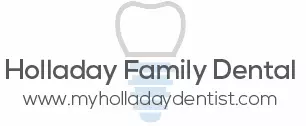
24 Feb 2017 What Is Bruxism?
Many people grind their teeth occasionally without causing much harm; this behavior on a regular basis, however, can result in significant damage to your teeth and jaws.
Bruxism, also referred to as jaw clenching or teeth grinding, is a common problem, but people often are not aware they suffer from the condition. This is because it usually occurs at night while the person is sleeping. Whether you notice the problem or not, the grinding can result in worn down teeth, jaw damage and pain, and loss of teeth. If you notice pain in your jaw, hypersensitive teeth, or worn teeth be sure to talk to a dentist about the possibility of Bruxism.
What Are the Causes?
Stress and anxiety can contribute to jaw clenching while awake, but in most cases the individual grinds their teeth while asleep. This can be caused by a number of factors, such as a sleep disorder, abnormal bite, or missing teeth. Caffeine and alcohol use may make the condition worse.
How Do I Know if I Grind My Teeth?
People often discover they have a problem when a loved one hears them grinding their teeth at night. If this happens to you or you experience signs of the condition such as jaw tenderness and worn teeth, contact our office to schedule an appointment. One of our dentists can examine your teeth and jaws for evidence of grinding and clenching.
Are There Preventative Strategies?
If you are concerned about teeth grinding, the following tips may help prevent the problem:
- Minimize caffeine consumption from foods and drinks, including coffee, soda, and chocolate
- Avoid drinking alcohol, which can increase grinding.
- Do not chew gum, which can train your jaw muscles to clench.
- Avoid chewing on anything that is not food, such as pens.
- Pay attention to your jaw muscles; if you notice they are clenched during the day, take a moment to relax.
- Hold a warm cloth against your cheek to relax your jaw muscles before going to bed.
What are the Treatment Options?
Our dentists can work with you to determine an appropriate treatment plan for jaw clenching. Often a mouth guard is an effective way to protect the teeth from night time grinding. Determining the cause of your grinding can help in choosing treatment options. If you grind your teeth due to stress, then seeking to reduce your stress levels will help. Prescription muscle relaxants are also sometimes recommended. If a sleep disorder is causing the problem, then treating the sleep disorder will also help with teeth grinding. Following the preventative tips above can be a beneficial part of treatment. We can help you create a treatment plan that fits your situation.
Bruxism can cause serious damage to your teeth and jaws if left untreated. Seeking help from our qualified dentists if you think you may suffer from the condition can help you prevent further damage. Our friendly staff in Holladay, UT is ready to assist you and answer your questions.

